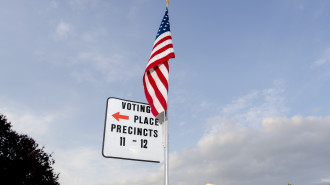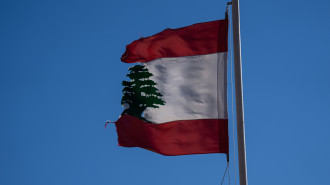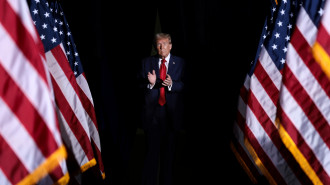
Slimane Bouhafs: Inside Tunisia's extradition of an Algerian political refugee

Rights groups in Tunisia are seeking an explanation from authorities over the mysterious abduction of Algerian political refugee Slimane Bouhafs and his extradition to his home country, where he is at grave risk of persecution.
Tunisian President Kais Saied promised on 3 September to open an investigation into the suspicious return of 54-year-old Bouhafs, an Algerian Christian convert and UNHCR-recognised refugee, during a meeting with the Tunisian League for the Defense of Human Rights (LTDH).
His pledge of a probe came on the same day that Amnesty International called on Tunisian authorities to “conduct prompt and thorough investigations into [Bouhafs’] abduction, enforced disappearance, and forced return to Algeria".
"Slimane Bouhafs, an Algerian Christian convert and UNHCR-recognised refugee, was reportedly kidnapped in Tunisia on 25 August and later resurfaced in an Algerian police station"
“The launch of the investigation was more of a diplomatic move to shut down public criticism,” Zine Ghebouli, an Algerian political analyst, told The New Arab. “If the story had got bigger it would have created a problem for Tunisia, especially at this time of crisis since the president’s power grab, which has been indefinitely prolonged”.
The circumstances of Bouhafs’ departure from Tunisia remain unclear. He was reportedly kidnapped by three men in civilian clothes from his house in Tunis on 25 August. He disappeared for four days before resurfacing at a police station in Algiers to then re-appear before an Algerian court on 1 September facing six undisclosed charges related to "terrorism".
What has made the case somewhat bizarre is the fact that on 29 August, the same day the dissident was confirmed to be in custody, Qalb Tounes party leader and media mogul Nabil Karoui and his brother, Ghazi Karoui, were arrested in Algerian territory on charges of illegally crossing the border. A court in the eastern city of Constantine ordered the detention of Karoui on 4 September.
Nabil Karoui had been released by a Tunisian court on 15 June after he spent more than six months in custody on money laundering and tax evasion charges.
In Ghebouli’s view, the frequent visits by Algerian Foreign Minister Ramtane Lamamra to Tunis this summer were about “making a deal” whereby the Algerian leadership took advantage of the vulnerability of president Saied at the height of a political crisis in the small North African state.
On 25 July, Saied took control of the country after he suspended parliament and sacked the prime minister, later extending his seizure of power after a month.
“Algeria offered its political support to the Tunisian head of state after the July events in return for the extradition of a political activist,” the Algerian scholar said.
There has been mounting speculation via Algerian and Tunisian media that the arrest of the former Tunisian presidential candidate along with his brother came in exchange for the almost simultaneous handover of the Algerian political refugee.
"After facing two years of unjust imprisonment in Algeria, Slimane Bouhafs went to Tunisia seeking safety, but it seems he was not far enough out of the Algerian government's reach"
Algerian news site L’Avant-Garde claimed that Bouhafs was delivered to Algerian authorities as part of a deal that involved Algeria returning Nabil Karoui to Tunisia while Saied was carrying out an anti-corruption purge hitting politicians and businessmen.
Civil society organisations in Tunisia, on the other hand, steered clear of such conjecture. Days after the meeting with Saied, the Tunisian Human Rights League’s Secretary-General Béchir Laâbidi excluded any link between the two cases, saying that the Karoui brothers will be sentenced to a three-month suspended prison sentence and deported directly to Tunisia according to Algerian law.
Algeria and Tunisia are bound by an agreement stipulating the extradition by either country “of any person prosecuted or convicted” in the other.
Yet, neither the Tunisian nor the Algerian authorities have issued any statement about Bouhafs case, nor have they clarified whether he was expelled or extradited to Algeria in accordance with a request from the Algerian government, which has raised serious concern over the dubious dossier.
|
|
Romdhane Ben Amor, a spokesperson for the Tunisian Forum for Economic and Social Rights (FTDES), denounced the silence from the Tunisian state calling it a “failure to take responsibility” in reference to the non-respect of its international commitments.
Under international human rights law, Tunisia is required to protect refugees and must not return them to a country where they may face persecution or human rights violations.
Furthermore, Tunisia should uphold its commitments as a state party to the Convention Against Torture which explicitly prohibits the extradition of individuals to countries where they would be in danger of facing torture or ill-treatment.
It is also obligated to protect the right to life of individuals within its territory and subject to its jurisdiction, under the International Convention on Civil and Political Rights (ICCPR).
Ben Amor also criticised the UN Refugee Agency in Tunisia, under whose protection Bouhafs had been placed, of reacting “not promptly” and “passively”.
UNHCR said it was “gravely concerned about reports of the forced removal to his country of origin of a refugee recognised by UNHCR in Tunisia” in an official response to his abduction.
“This action was staged through security cooperation between the Tunisian and Algerian sides, in full coordination with Tunisia’s ministry of interior,” FTDES’ communication officer told The New Arab.
He questioned how the Tunisian presidency could be unaware of the interior ministry’s plan, arguing that the chief of state currently holds all executive authority.
“We are very concerned that Tunisia did not fulfil its obligation. That reflects the state of rights and freedoms under threat we are observing since the president’s coup de force,” the spokesman said.
"There has been mounting speculation that the arrest in Algeria of former Tunisian presidential candidate Nabil Karoui, along with his brother, came in exchange for the almost simultaneous handover of Slimane Bouhafs"
“After facing two years of unjust imprisonment in Algeria, Slimane Bouhafs went to Tunisia seeking safety, but it seems he was not far enough out of the Algerian government’s reach,” Amna Guellali, Amnesty’s Deputy Director for the Middle East and North Africa, stated in a press release.
“The Tunisian government shares responsibility for his fate and should come clean about its role in his abduction and return,” she added.
The Algerian political opponent was sentenced in 2016 to three years in prison in Algeria over Facebook posts deemed offensive to Islam. He was released in 2018 after a presidential pardon and fled to Tunisia, then obtained refugee status in 2020.
Tunisia’s possible awareness of, or cooperation, in Bouhafs’ forcible transfer to Algeria would constitute a grave violation of the principle of “non-refoulement” and international refugee law, setting a worrying precedent for Tunis.
The incident has drawn widespread dismay within Tunisian civil society. At least 40 local rights groups released a joint statement on 30 August demanding “clarifications from the [Tunisian] authorities on the mysterious circumstances” of the Algerian activist. They also noted that the Tunisian constitution specifically prohibits the extradition of political refugees.
While the charges against the activist are still unknown, official sources cited in Algerian media outlets said he is being accused of belonging to the Movement for Self-Determination of Kabylie (MAK), a political group seeking independence for the mainly Amazigh (Berber) region of Kabylie in the north-west that Algerian authorities define as a terrorist organisation.
The forced return of Bouhafs comes against a backdrop of political repression under the pretext of counterterrorism in Algeria. Amnesty reported that since last April the Algerian authorities have increasingly used broad charges of “terrorism” or “conspiracy against the state” to prosecute anti-regime Hirak activists and human rights defenders.
The High Council for National Security (HCNS), presided over by Algerian President Tebboune, announced in May that the political opposition organisation Rachad and the separatist group MAK had been designated “terrorist entities”. On 18 August, the HCNS also ordered the arrest of all members of the two movements whom the authorities blamed for having a role in the devastating Kabylie fires.
On 6 September, a few days after Bouahfs appeared in court in Algiers, Algerian police arrested 27 other suspected members of MAK.
“The Algerian Power now wants the public focus on these two groups [MAK and Rachad] which are both seen as a threat to national security, and typically holds them responsible for whatever happens domestically,” Ghebouli said.
According to the political analyst, despite suspicions about Tunisia’s role in the Bouhaf incident, little international attention will be paid to the story of a forcibly returned Algerian refugee at a time when the young Arab democracy is struggling with more pressing issues like a political roadmap, institutional legitimacy, and the separation of powers.
Alessandra Bajec is a freelance journalist currently based in Tunis.
Follow her on Twitter: @AlessandraBajec

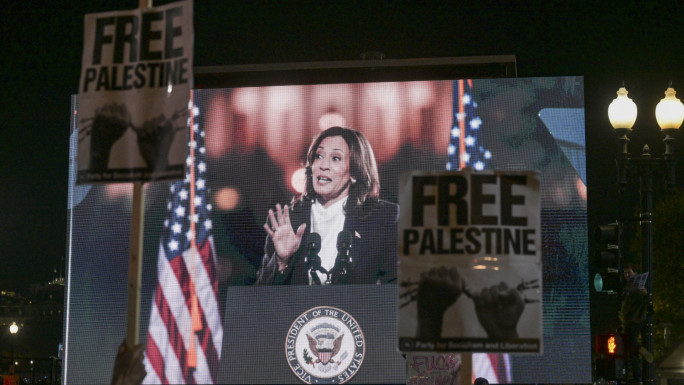

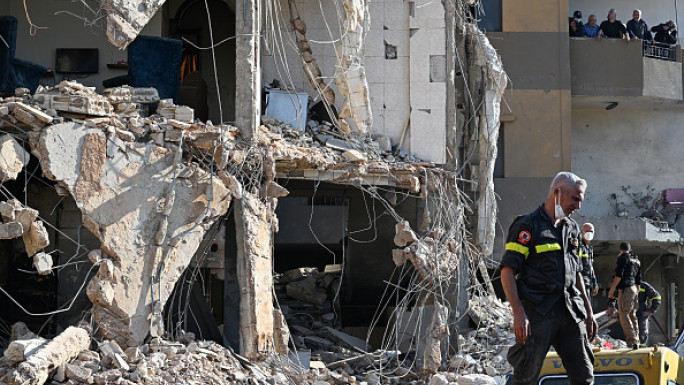
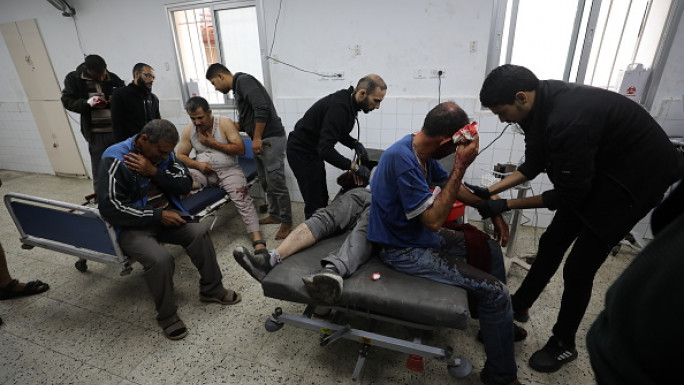
 Follow the Middle East's top stories in English at The New Arab on Google News
Follow the Middle East's top stories in English at The New Arab on Google News
